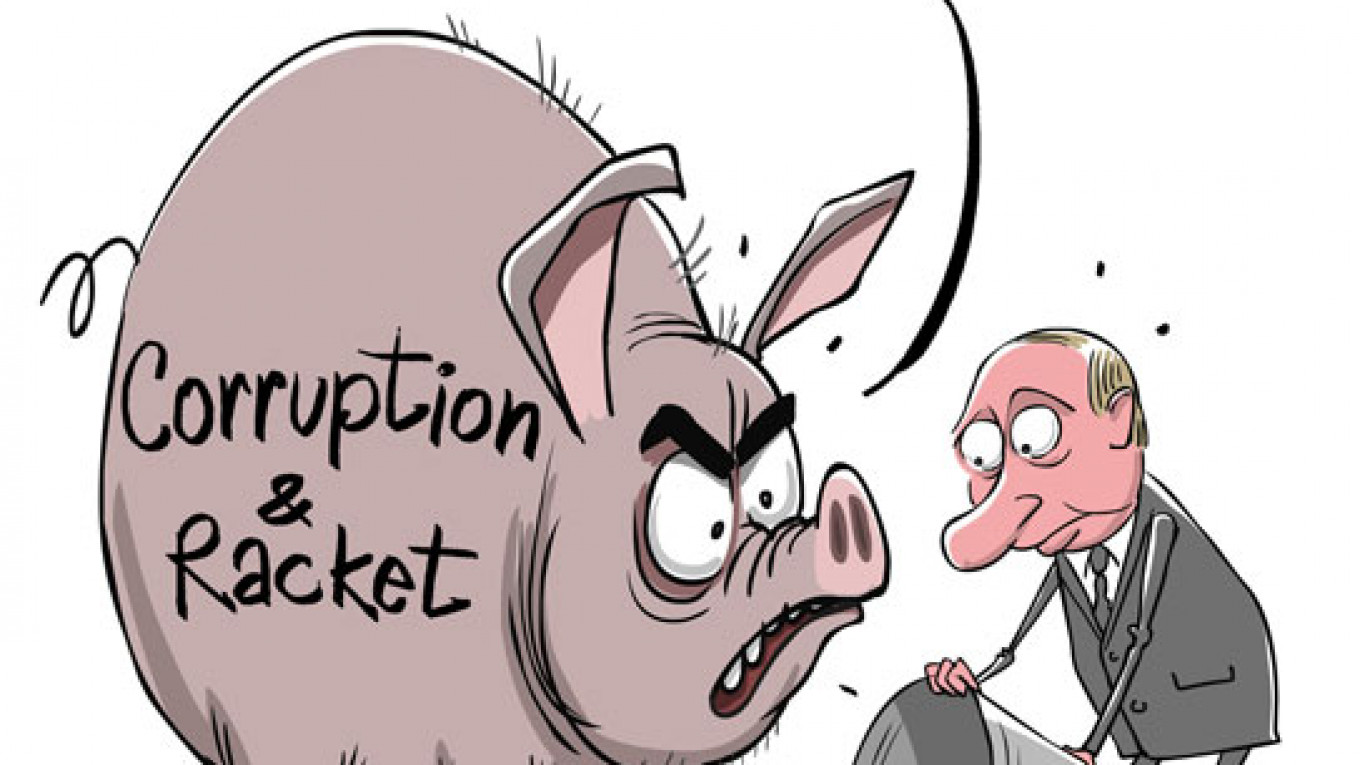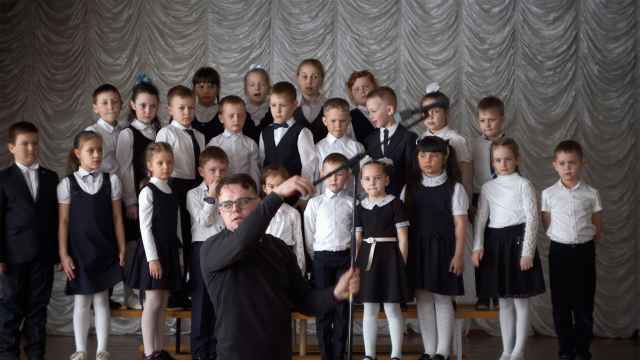The opening weeks of 2014 have brought no improvement to the Russian economy, with the ruble suffering a sharp devaluation, industry stagnating in January and inflation accelerating in February.
Even though President Vladimir Putin has acknowledged that Russia has exhausted all growth opportunities based on a "raw materials" economic model, both he and his ministers are at a loss to explain the economic slowdown.
The only hope for investment is from state and foreign companies. AvtoVAZ is more than just a major enterprise for President Putin.
Government officials repeatedly blame adverse conditions abroad for the problem, but this theory does not hold water. World oil prices — the main channel by which the Russian economy receives positive or negative signals from the outside world — have remained at a comfortable $105 to $110 per barrel. The volume of Russia's exports has not grown, but neither has it fallen. Russian gas exports to Europe have reached record highs. True, demand for metals has fallen, but the metals account for no more than 7 percent of all Russian exports and less than 3 percent of gross domestic product. Any disquietude in the world financial community tends to drive up interest rates on Russian debt, but those rates remain near historic lows. And, most important, the world economy is looking increasingly bullish.
Many agree that Russia's economic slowdown stems from a decline in the investments that fell by 0.3 percent in 2013 while no economy can grow without investment. Throughout the 15 years following the economic crisis of 1998, the growth rate of investment in the Russian economy has remained roughly double the growth rate of GDP. If one uses that ratio as a forecast for economic growth, then the 1.3 percent growth that the Russian economy demonstrated in 2013 was a remarkable result given a decline in investment.
With Russia failing to protect property rights or rein in endemic corruption, it is no wonder private businesspeople are reluctant to invest. That means if the authorities are not keen to implement institutional reforms but hope to see a revival in investment activity, they must rely on the state sector and foreign business. However, the state sector also shows little promise. Budgetary investment has fallen significantly at the federal level, but even more at the regional level and the governmental decision to freeze prices for natural monopolies such as railways, power and gas have left those sectors without the anticipated financial resources.
Foreign businesses long ago understood the rules of the Russian game: to succeed you need to have good relations with the authorities and a partially state-owned company for a reliable partner. However, it seems that this situation is bound to change, with AvtoVAZ — Russia's single largest industrial enterprise outside of the raw materials sector — providing the first indication of this shift.
The nature and scale of the carmaker, with its massive assembly cycles and hundreds of parts subcontractors, is such that any slowdown or acceleration of the assembly line instantly affects the growth of Russian industry and, as a result, of the entire economy.
That effect was clearly evident in May 1998, when the AvtoVAZ workweek became a quarter shorter and Russia's manufacturing output plummeted overnight. Similar episodes occurred in the summer of 2002 and during the crisis of 2008 to 2009. The opposite happened in November that year, when the devaluation of the ruble caused the price of Lada cars to fall in dollar terms. This sparked a surge in demand and the rapid growth of Russia's industry — all at a time when the financial sector was still a smoking ruins.
In 2013, AvtoVAZ car sales was at nearly 535,000 units, a 12 percent drop from the previous year. Of course, that was in part due to outdated models getting pulled from production. But a decline in consumer demand was a much more important factor.
AvtoVAZ got off to a bad start in the New Year, announcing a more than 10 percent reduction to its workforce. That means the Tolyatti plant has not seen any positive signs from the economy that might signal a revival in consumer demand.
As often happens in business, this came at a bad time for AvtoVAZ. The company is nearing the completion of a major investment program that would double production capacity. Any delay in launching the new facilities would reduce the returns. But manufacturing at the higher capacity in the absence of demand could lead to extra stocks and a sharp decline in the firm's financial position.
The current crisis in Tolyatti will undoubtedly unfold differently this time around. Well aware of its significance for the Russian economy, the government has traditionally helped the firm in times of crises. However, that was when the main AvtoVAZ shareholder was Vladimir Kadannikov, one of the most influential "red directors" of the 1990s who could meet with former President Boris Yeltsin any time he wanted, Boris Berezovsky, or the state-owned Rostech corporation. Now, Franch-Japanese carmaker Renault-Nissan is the main shareholder in the plant, and its chief, Carlos Ghosn, has met with Putin several times and told him of AvtoVAZ's bright future.
AvtoVAZ is more than just a major enterprise for Putin. He defied the advice of almost all his ministers and took personal responsibility for allocating budgetary funds to save the plant in 2009. At that time, AvtoVAZ shareholders understood that they must seek assistance from the government to repay their bank debt. But what can they ask for now — accelerated economic growth? The government itself wants that, but it has no idea how to achieve it.
Sergei Aleksashenko, former deputy finance minister and first deputy chairman of the Central Bank, is a visiting fellow at Georgetown University.
A Message from The Moscow Times:
Dear readers,
We are facing unprecedented challenges. Russia's Prosecutor General's Office has designated The Moscow Times as an "undesirable" organization, criminalizing our work and putting our staff at risk of prosecution. This follows our earlier unjust labeling as a "foreign agent."
These actions are direct attempts to silence independent journalism in Russia. The authorities claim our work "discredits the decisions of the Russian leadership." We see things differently: we strive to provide accurate, unbiased reporting on Russia.
We, the journalists of The Moscow Times, refuse to be silenced. But to continue our work, we need your help.
Your support, no matter how small, makes a world of difference. If you can, please support us monthly starting from just $2. It's quick to set up, and every contribution makes a significant impact.
By supporting The Moscow Times, you're defending open, independent journalism in the face of repression. Thank you for standing with us.
Remind me later.








